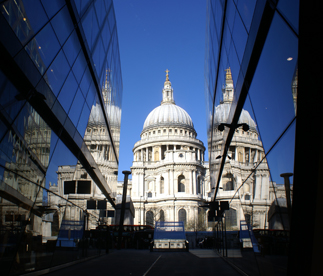A Home Office consultation – covering England and Wales – about how better to protect places of worship runs to May 10. Mark Rowe digests a consultation document.
As the document sets out, the Government wants to hear about patterns of hate crime; whether those patterns have changed in recent years. What is the experience of particular groups, whether women, or the elderly. While generally and in the document, the Government makes much of its Places of Worship Protective Security Funding scheme. That provides funding – £1.6m this year, £3.2m the next – towards such as CCTV, fencing, gates, alarms and lighting – not guards – to places of worship and associated community centres that are vulnerable to hate crime.
As the document acknowledges, the risk to worshippers is not only inside a place of worship, despite high-profile attacks as in Christchurch in March 2019, and against churches in Sri Lanka. Indeed, we can say that in the commercial world, adding security in one place, such as at banks, against robbery, making it harder for robbers to steal, may only displace them to other targets less well protected, such as betting shops, petrol stations and convenience stores.
So it is with places of worship – arsonists, graffiti writers and those who want to commit hate crime, verbal and physical, may turn to community centres, old age homes, schools; or no place in particular; the document gives the example of Jewish people who walk to and from sabbath services because their faith does not allow them to drive.
This is not a new problem. Jewish groups separate from the Places of Worship Protective Security scheme received some £14m in 2018-19) from the Government ‘to provide additional security for schools and communal buildings, and a small amount of this is spent on synagogues. This is administrated through CST [Community Safety Trust, a charity] and it was created to ensure the safety of the Jewish groups from credible terrorist threats. This scheme commenced in 2010′. That said, evidence suggests hate crime is on the rise, particularly after terror incidents and during what the document terms ‘tension’, as the CST has reported in its recording of anti-semitic incidents. And in fairness the document says that in 2015 the Government raised its funding to the Jewish community, due to ‘a significant increase in antisemitic incidents in the UK’.
One part of hate crime that went unsaid throughout the consultation (it’s by the National Centre for Social Research, for the Home Office) was cyber – in fairness treated elsewhere in Government under ‘online harms’. And little is said about places of worship facing risks from the mentally ill.
The document and a foreword by Home Secretary Priti Patel each set out the dilemma. The document speaks of many faiths having an ‘open door policy’, meaning that a bag check at the door sits uneasily with a welcome to all, no matter what they look like or if they are strangers. Sikhs, for example, do not believe in turning people away from Gurdwaras unless they are a danger or specifically breaking the rules, such as about alcohol.
Priti Patel says: “People who are visibly identifiable with a particular religion are afraid of being subjected to verbal or even physical assaults. Places of worship are designed to be prominent, but this visibility makes them clear targets to those who wish them harm. The sad truth is that people coming together for peaceful worship will always be a target for those who use violence to spread hatred and fear.”
One piece of news (although originally announced in March 2019) is that Home Office will ‘be launching a new security training programme across all faiths later this year’; which may include personal security; and evacuation and lockdown procedures. The document says it wants ‘new and innovative ideas’; as if worshippers know better than those paid and elected to protect them and their buildings. On training, the document goes over difficulties – who would be a trainer? If a specialist, that will be costly and time-consuming, and worshippers may not have the same trust in an outsider as they would in one of the congregation. But if one of their own gave the training, what of its quality. How to put training across to those especially vulnerable such as the young and old; and what of those who do not speak English as a first language?
The document asks about particular faiths. For example, as Muslim worshippers will remove their shoes when entering a mosque; what are the implications for planning evacuations and emergency response? The Jewish community, according to the document, is ‘notably different in their approach to security’, namely long having given time and money to it.
Shortcomings in police recording of hate crime are admitted; notably, that it’s under-reported. Besides, police may record it incorrectly; the document notes that Sikhs may find themselves ‘the target of anti-Muslim motivated offences’. And what to the secular world may look like a theft, for ‘financial gain rather than hate’ – at a Hindu temple, stealing a donation box at a festival when it may be fuller – worshippers may find that particularly upsetting on religious grounds. Similarly, according to the document, Christian churches’ security concerns within the UK ‘remain relatively small’. The consultation says that ‘larger cathedrals have security plans’ but that the most common concerns of smaller churches are theft and anti-social behaviour; that may also imply that many churches do not consider the threat, or that they may be vulnerable. Which returns us to the ‘sad fact’ as laid out by Priti Patel, that clergy and worshippers meaning well may be taken advantage of.
Picture by Mark Rowe; St Paul’s Cathedral from One New Change, morning.










